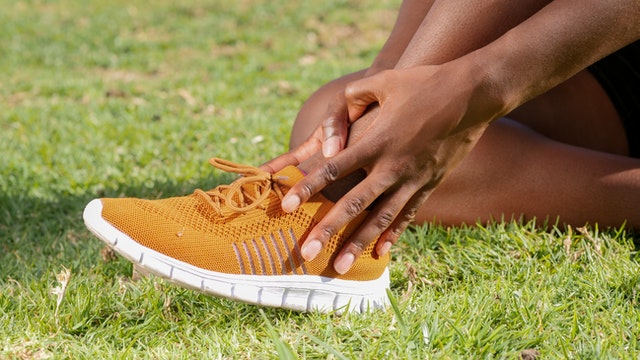Although exercise with a personal trainer or going to the gym, or even finding the right sport for you so you can do it regularly are all positives, the truth is that, sometimes, injuries can happen no matter what kind of exercise you do. Don’t let this put you off, however; there are many ways to prevent injury when exercising, and none of them should mean you have to reduce or limit the amount of exercise you’re doing. Read on to find out more.

Have A Complete Physical
You’ll notice that all fitness professionals (and the instructions on new pieces of exercise equipment) will always suggest you see a doctor before starting a new exercise regime. There is a reason for this; it’s because if you go to a doctor and let them know what you’re going to be doing, they will check you over and determine whether that’s a safe idea or not. If it is, you’ll find you have much less chance of being injured. If it isn’t going to be good for you, you’ll know in advance, and you can change your plans. Thus you won’t run the risk of injury that you otherwise would. You might even get some good advice, such as joining a heart disease prevention program for senior women, for example.
It’s good to know your own limitations when it comes to health since you’re exercising to become healthier, not to do yourself more harm. If there are limits to what you can do, a personal trainer will be able to help you make the right choices and get fitter via a different route.
Warm Up And Cool Down
No matter that they know they need to warm up before exercising, with time at a premium, many people still leap straight into exercising, whether that be weight training, running, cycling, using gym equipment, or anything else. The problem is that, although they won’t realize it at the time, they are risking injury because the muscles won’t be supple enough. If you move in the wrong way, you can do damage, and that will cause pain. When you warm up properly, taking just a few minutes to stretch out, your muscles will be ready to move how you want them to (plus, your blood will be flowing quicker as it will be more oxygenated, making exercise easier).
You should also wind down after exercise to help your heart rate and blood flow return to normal. Having a warm bath can be a good way to do this as it will soothe your muscles, too, although there are other ways, such as stretching or a light jog.
Make Sure You Eat
There seems to be a fear amongst gym-goers and exercisers that if they eat before they do any kind of exercise, they will get a cramp or be sick, or generally feel unwell. Plus, of course, they are going to be losing calories, so why add more in the form of food?
The truth is that exercising on an empty stomach can cause injury. Not only could you feel faint and fall over, but your muscles won’t be working at their best, and they might be stiff or slow to move, meaning that they twist and become damaged. If you eat two hours before a workout, you can lose those calories easily, and you’ll be stronger and therefore less likely to be hurt.